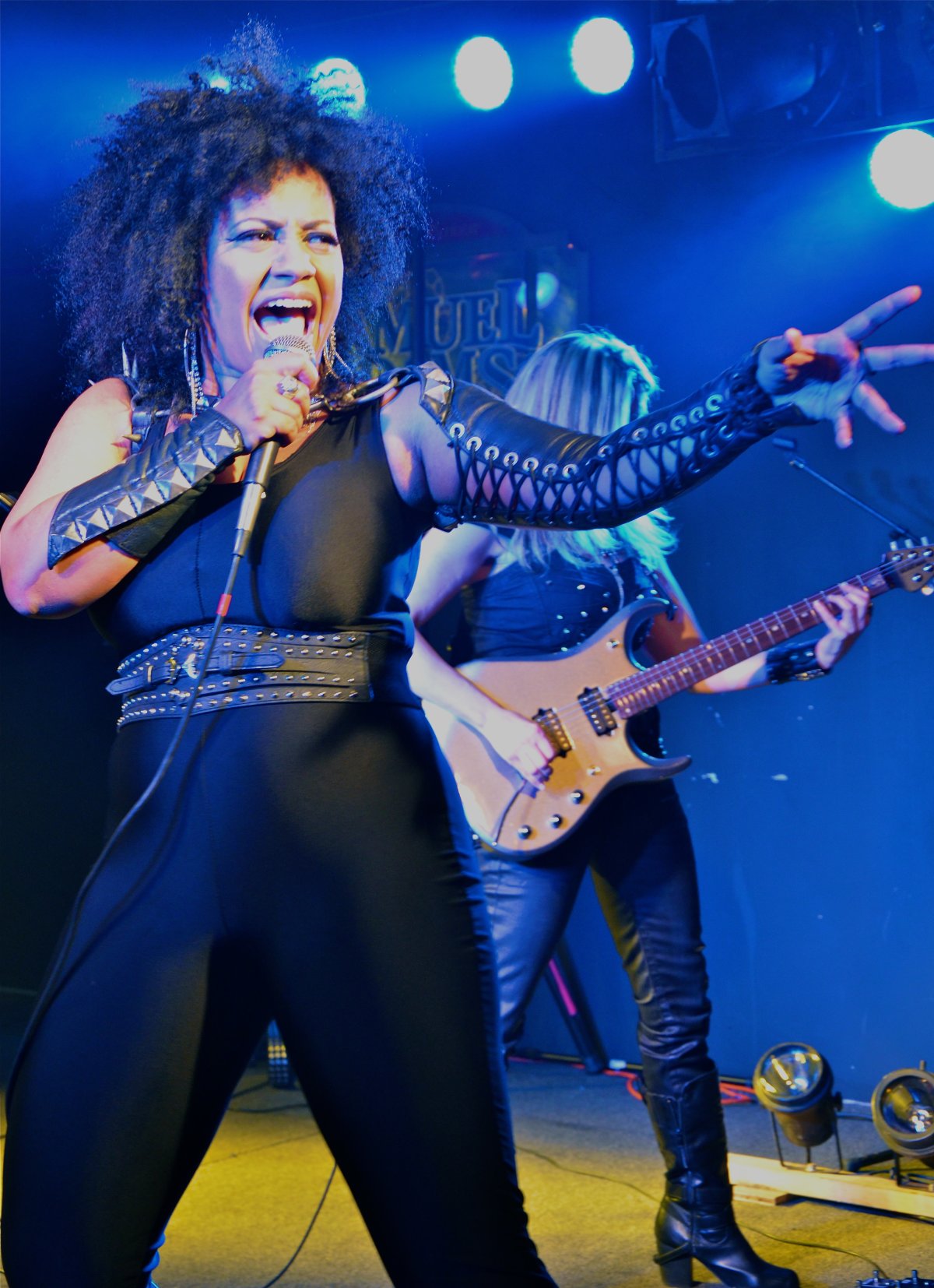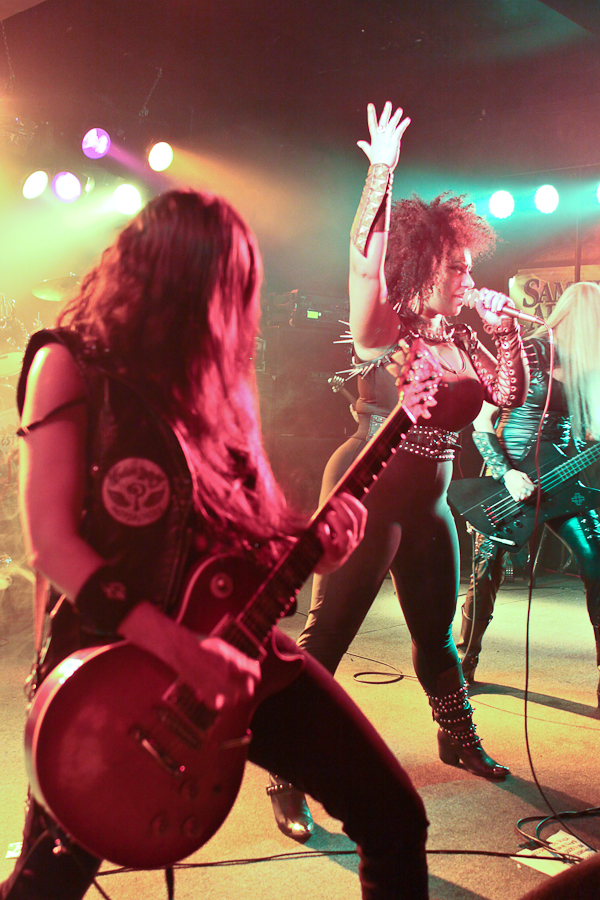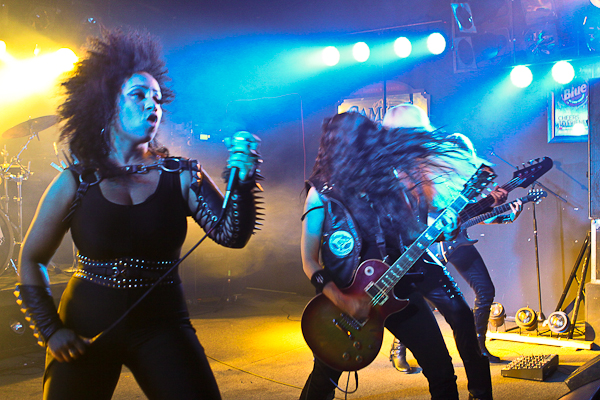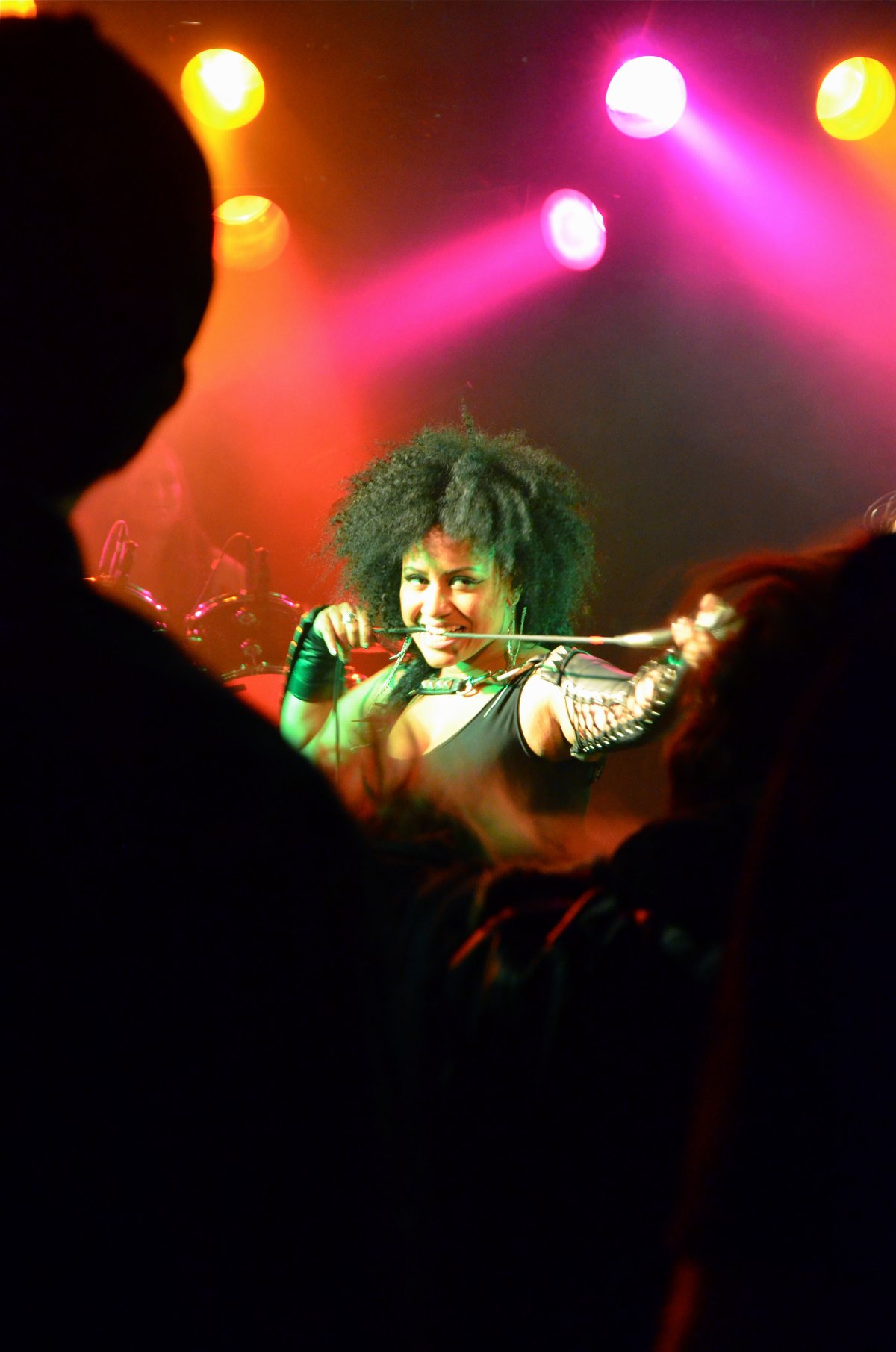WATCH: Heavy Metal singer MilitiA Vox talks about how the music industry sees black female performers.

TORONTO – Laina Dawes has been a heavy metal music journalist and photographer for 20 years. In that time, she’s learned black females aren’t always welcome.
“I’ve gotten, ‘Don’t you people have your own music?’” she says.
The heavy metal scene is populated mostly by white males, and the reactions Laina has gotten range from curious stares to outright racism.
Laina has loved metal since she was a girl, growing up with her white adopted family in Kingston, Ontario in the 1970s.
“I realized I was different from the time I was five. The realization that you are only, the only black person, or only one of a few black people, you always feel like an outsider. So I always felt like I didn’t really belong there. … It was tough and I felt like I didn’t have anyone to talk to.”
She got into the music her white neighbours were listening to.
“Basically it was the power that I think I was attracted to, because I didn’t feel powerful when I was a kid.”
She got into the aggressive sounds of rock bands like KISS and, later, the likes of Judas Priest. The music provided a release from her feelings of alienation.
“I’ve been quite honest about, if it wasn’t for metal I would have killed myself … because you need that outlet for your anger,” she says, holding back tears.
She got out of Kingston as soon as she could, and moved to Toronto looking forward to more diverse cultural experiences. To her surprise, she not only experienced discrimination at concerts; she was also excluded from black social service organizations because of perceptions that her musical tastes made her “less black.”
“There’re a lot of issues within black communities, in terms of resistance and letting their children really listen to not only a diverse set of music, but also be involved in a diverse set of cultural things. And that was a huge issue.”
Laina decided to investigate why her choice of music was so difficult for so many people to understand. She wrote a book called What Are You Doing Here?
“What Are You Doing Here is a title that has always been with me since I started working on the book. I always knew the book was going to be called that because obviously it’s the question that, you know, everyone gets asked the most is, ‘What are we doing here?’”
Writing the book helped Laina connect with other black women who love metal. And she found she wasn’t alone in her struggles.
“You really feel less alone, and it really legitimizes that in some ways you’re normal for just wanting, being passionate about a certain culture … that you’re not a weirdo like you were told you were for so many years.”
One of the women she interviewed was MilitiA Vox, a New York City metal singer who has had many of the same experiences Laina had.
“It was a thrill to meet Laina because I was like, ‘Wow, there is another one like me.’ And that feels good because there’s camaraderie there.”
MilitiA has been offered record contracts by big labels, but those offers always came with conditions attached.
“You should be in heels, always. Try to do the Tina thing, she always wore wigs. So you should probably get a straight wig to cover … because if it’s too wild, if it’s too ethnic … people will turn away” MilitiA told 16X9 in an interview after a concert. “And is it unfortunate? Yeah. Does it cost me work? Jobs? Experiences? Opportunities? Absolutely”
For Laina, there were family consequences, too. Her adoptive family was taken aback by the personal revelations in the book.
“One of the things that I found was challenging in terms of writing about the book was writing about my family, writing about the adoption and really trying to, first of all, navigate and be tactful in terms of being honest and saying my childhood sucked. But you have to pay the price for being that honest in your book.”
The book came out in late 2012. 16X9 traveled back to Kingston with Laina in December 2013 as she went home to see her parents for the first time since the book was published. She was visibly nervous as we pulled into her parents’ driveway.
The reception was polite, but there was a clear emotional distance between Laina and her parents. But then, Laina’s mother gave her a special keepsake that caught her off guard.
“I didn’t know you kept, like printed off all these,” she says, staring in amazement at a thick booklet containing copies of every article she’d ever written.
It’s a moment in time that bridges gaps. There is still confusion and distance between Laina and her parents, but it’s clear her parents care deeply about her. It’s a testament to the power of music to make connections.
Don’t miss “Black Metal” this Saturday at 7pm on 16X9.






















Comments